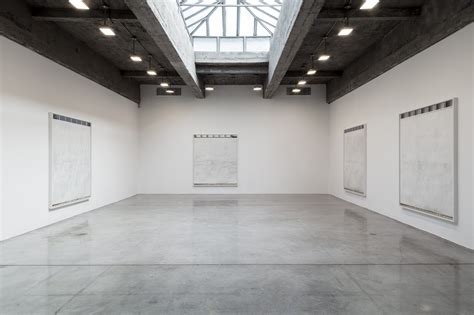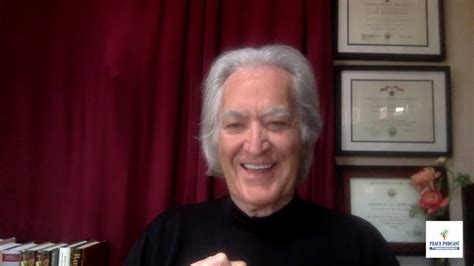A Quote by Uta Barth
Everything is pointing to one's own activity of looking, to an awareness and sort of hyper-consciousness of visual perception. The only way I know how to invite this experience is by removing the other things (i.e., subject matter) for you to think about.
Related Quotes
It is what makes conscious of the conditions and laws of observing which applied in this manner become a theme on its own. The activity of consciousness depending on the way the work itself proceeds, becomes the subject of my attention this way and it is precisely because of this voyeuristic attitude toward the own observation and experience of the subject that the conscious analytic dimension in the work shows.
The love of God uplifts and enlarges us. I can never think of myself anymore as exclusively in this body; I feel that I am present in all bodies. I have no awareness of race or other distinctions at all. In my perceptions, just as I feel my own consciousness in every part of my physical form, I feel you all to be a part of me. Everything that is living I feel within this body. I know the sensations of all. It is not imagination; it is Self-realization. This consciousness is far beyond telepathy. It is awareness of the perceptions of every being. That is the meaning of Christ Consciousness.
How does he achieve this independence? He does it by means of a continuous activity. How does he become free? By means of constant effort. we know that development results from activity. The environment must be rich in motives which lend interest to activity and invite the child to conduct his own experiences.
Cinema is a visual language, and you're always looking for visual metaphors for things. You know, if I was writing a play about Howard Hughes, I could have him give a monologue about how he's terrified to touch a doorknob. But on screen, you know, working with Marty Scorsese in 'The Aviator,' that became the series of images that told a story.
The themes that run through all my work are that consciousness is the ultimate reality; and that by understanding consciousness, you understand everything about yourself, about perception, about creativity, about behavior, about relationships. By understanding consciousness, you have the ability to create anything in your world. And you have the ability to influence also the collective consciousness to not only bring about personal healing, but social transformation, and ultimately healing our planet, which happens to be extremely wounded.
I think you reveal yourself by what you choose to photograph, but I prefer photographs that tell more about the subject. There's nothing much interesting to tell about me; what's interesting is the person I'm photographing, and that's what I try to show. [...] I think each photographer has a point of view and a way of looking at the world... that has to do with your subject matter and how you choose to present it. What's interesting is letting people tell you about themselves in the picture.
The cognitive structure does not generate consciousness; it simply reflects it; and in the process limits and embellishes it. In a fundamental sense, consciousness is the source of our awareness. In other words, consciousness is not merely awareness as manifest in different forms but it is also what makes awareness possible.
Only in the 20th century, artists started taking the study of perception in a more humane way. They were thinking about the eye as being an instrument, the whole body as being a visual instrument. That sort of gave way a little bit with Cartesian - the "Cogito ergo sum" argument. It's not, "I think therefore I exist." It's, "I feel therefore I think therefore I exist."
We have to have loving speech. And if we are honest, if we are true, terrorists will open their hearts. Then we practice compassionate listening, and we can learn so much about our own perception and their perception. Only after that can we help remove wrong perception. That is the best way, the only way, to remove terrorism.
No matter how much we know about the other person, there is always something going on in that other heart and that other head that we don't know but can only ponder. And no matter how we explain ourselves to someone else, no matter how open we are, there is always still something inexplicable, something hidden and unknown in us, too.



































